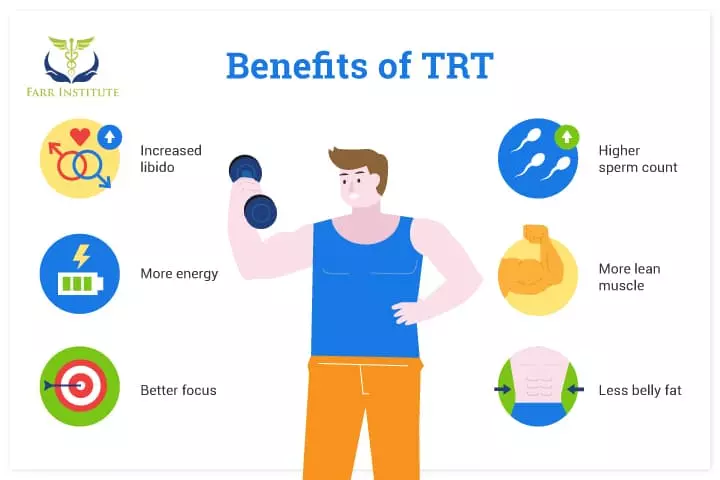
Testosterone Replacement Therapy (TRT) is a medical treatment used to alleviate the symptoms of low testosterone levels. Low testosterone can have a range of negative effects on the body, including low energy levels, decreased muscle mass, and decreased sex drive. TRT involves the use of testosterone supplements to restore normal testosterone levels in the body. One method of TRT that has gained popularity in recent years is the use of peptides. Peptides are small chains of amino acids that can have various effects on the body, including stimulating the production of testosterone. In this article, we will explore the pros and cons of peptides for TRT.
Pros:
1 Increased testosterone production:
Peptides work by stimulating the production of luteinizing hormone (LH) and follicle-stimulating hormone (FSH), which in turn stimulate the testes to produce more testosterone. This can be particularly useful for individuals who have low testosterone levels due to hypogonadism or other medical conditions.
2 Improved muscle mass and strength:
Testosterone is a key hormone for muscle growth and repair, and low levels of testosterone can result in decreased muscle mass and strength. By increasing testosterone levels, peptides can help to improve muscle mass and strength, which can lead to increased physical performance and overall well-being.
3 Increased sex drive:
Testosterone plays a crucial role in sexual function, and low testosterone levels can lead to a decreased sex drive. Peptides can help to increase testosterone levels, which can in turn improve sexual function and desire. This can be particularly beneficial for individuals experiencing sexual dysfunction due to low testosterone levels.
4 Improved bone density:
Testosterone is also important for maintaining bone density. Low testosterone levels can lead to a loss of bone density and an increased risk of osteoporosis. By increasing testosterone levels, peptides can help to improve bone density and reduce the risk of osteoporosis.
5 Fewer side effects than traditional TRT:
Traditional TRT often involves the use of synthetic testosterone, which can have a range of side effects, including acne, breast enlargement, and an increased risk of blood clots. Peptides, on the other hand, are generally considered to have fewer side effects than traditional TRT. This is because peptides work by stimulating the body’s natural production of testosterone, rather than introducing synthetic hormones into the body.
Cons of Peptides for TRT:
1 Limited research:
While there is some research to suggest that peptides can be effective for TRT, the research is still relatively limited. More research is needed to fully understand the effects of peptides on testosterone levels and the potential side effects of using peptides for TRT.
1 Potential side effects:
While peptides are generally considered to have fewer side effects than traditional TRT, they can still cause side effects in some individuals. These can include headaches, nausea, and fatigue.
2 Risk of abuse:
Peptides are sometimes used by athletes and bodybuilders to increase muscle mass and strength. This can lead to the abuse of peptides, which can have negative effects on health and well-being.
Conclusion:
Peptides can be an effective treatment for TRT, offering benefits such as increased testosterone production, improved muscle mass and strength, increased sex drive, and improved bone density. However, there are also potential drawbacks to using peptides for TRT, including limited research, expense, difficulty of administration, potential side effects, and risk of abuse. Individuals considering using peptides for TRT should weigh the potential benefits and drawbacks carefully and consult with a healthcare provider to determine if peptides are a good option for them.